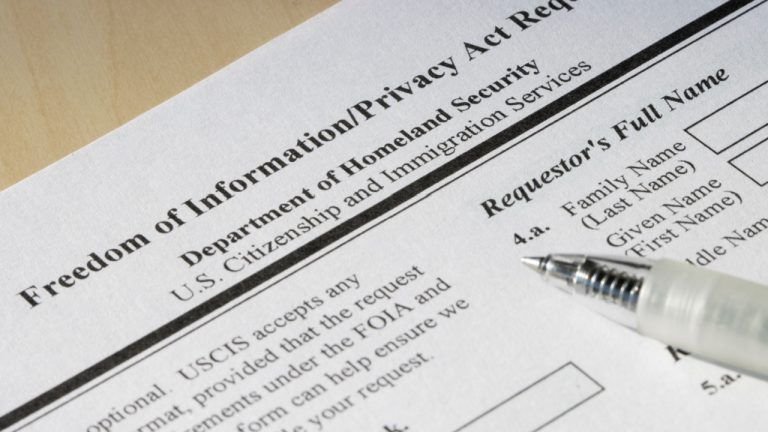
House on a hill: Top countries to buy real estate with crypto

More countries are beginning to allow real estate purchases using crypto, here are some of the top destinations.
The mainstream adoption of cryptocurrencies has brought immense potential to the fintech industry, and some of the capabilities have spilled over into the real estate market. Subsequently, the real estate sector is evolving to accommodate a new crop of investors who prefer making payments using crypto.
The trend of investing in real estate with crypto gained momentum in 2021 following a market explosion that saw Bitcoin (BTC) breach the $60,000 mark. Today, numerous jurisdictions have amended their real estate laws to allow property purchases using crypto due to their transformative impact.
Alexander Tkachenko, CEO and Founder of the VNX liquidity mining platform, told Cointelegraph that the full capabilities of crypto in real estate remain untapped.
“There is still a huge demand for alternative financial and payment instruments around the world,” he said while adding that favorable regulations would go a long way in creating a more enabling environment for both industries:
“Development of regulation that will create clear rules for industry players and protect investors.”
Scott Scherer, CEO of Owners Unity — a company that allows homeowners to derive passive income from their assets through a decentralized finance (DeFi) model — echoed Tkachenko, telling Cointelegraph, “Investors and governments have come to accept the fact that crypto is here for the long term.”
He added that investors are increasingly using cryptocurrencies to transact due to the efficiency of crypto networks as compared to conventional banks.
Anastasia Kor, the chief marketing officer and board member of the innovative MetaFi ecosystem, Choise.com, told Cointelegraph that novel blockchain concepts such as real estate tokenization also appeal to global investors:
“The projection that tokenization will help to make real estate more liquid is not far from the truth. Tokenization will position the luxury properties that are confined to a region and make them global and accessible to interested buyers and investors around the world.”
So, which countries currently support real estate purchases with crypto?
Thailand
Thailand was among the first Asian countries to legalize cryptocurrency use. The nation presently allows real estate buyers to make payments using crypto. Investors who wish to use this mode of payment are required to seek the services of local accredited real estate agencies that accept virtual currencies.
While the nation had previously banned cryptocurrency trades, the ban was lifted in February 2014. Today the trading of major cryptocurrencies such as Bitcoin, XRP (XRP), Ether (ETH) and Stellar (XLM) is allowed in accordance with rules stipulated by the Thai Securities and Exchange Commission (SEC).
It is worth noting that while individuals are allowed to deal in cryptocurrencies, regulated financial institutions operating in the country, including banks, are not. Consequently, buyers looking to buy property in Thailand using crypto are expected to make use of alternative money transfer systems for transaction settlement.
United Arab Emirates
The United Arab Emirates is a top business destination and is emerging as a major crypto hub, with many international crypto organizations setting up shop in the country to capitalize on the budding status. The nation’s cryptocurrency market has grown multi-fold over the past two years and is projected to grow ten-fold over the next couple of years, all conditions remaining constant.
For a long time now, the nation has been a paragon of exemplary architectural marvels which have put the country on the map as a leading Middle East/North Africa real estate powerhouse. Some of the nation’s radical structures have been developed through government-led initiatives aimed at stimulating interest in the local property market.
Recent: Election tally: Does blockchain beat the ballot box?
The convergence of the crypto and real estate sectors has prompted the establishment to allow the synergy of the two industries in an effort to open up the real estate sector to global investors and accelerate the development of its non-oil economy.
Presently, crypto users in the UAE can purchase houses, villas, apartments, and buildings using digital currencies through authorized agencies.
On the regulatory front, the central bank has yet to designate cryptocurrencies as legal tender, so there are a few limitations such as the lack of crypto service provision by banks. However, crypto transactions among individuals and some regulated real estate agencies are allowed.
Turkey
Cryptocurrency usage is high in Turkey, with over eight million Turkish citizens owning digital currencies. Adoption is spurred by myriad factors including runaway inflation, which has led to the devaluation of the Turkish lira. The national currency has lost over 50% of its value against the United States dollar over the past two years.
With more people using cryptocurrency to transact, real estate agencies in the country are beginning to accept crypto payments.
Investors can acquire property in the transcontinental country through regulated real estate agencies. People who invest at least $250,000 in fiat or the equivalent in crypto in property buys also stand to acquire direct citizenship if they so desire through the Turkish golden visa program.
Portugal
Portugal is one of the most crypto-friendly nations in the European Union. As such, it comes as no surprise that the government has made it possible for investors to buy real estate property using cryptocurrencies. In previous years, buying real estate with crypto was allowed, but the money had to be converted into fiat for a property transfer to be finalized. This changed in April when new pertinent laws were introduced.
The latest statutes allow notaries to ratify real estate deals involving crypto. Additionally, digital currencies don’t have to be converted into fiat for property ownership transfers to be valid. The new rule categorizes these types of trades as barter deals.
Montenegro
Montenegro is one of the most financially liberal nations in the Balkans, and when it comes to crypto, the nation has no special requirements for cryptocurrency deals, including crypto real estate purchases. Notably, the country has, in recent years, been making conscious efforts to become a major crypto center due to the potential macroeconomic benefits.
In April, it awarded Ethereum co-founder Vitalik Buterin citizenship as part of a campaign to woo crypto investors into the country.
Real estate investors looking to buy property in Montenegro using cryptocurrencies face few problems so long as the deal is sanctioned by a certified notary.
Georgia
Georgia has a lot to offer to investors and has many laws that are aimed at encouraging foreign investment. Investors who wish to put their money in the country, for example, pay zero taxes on capital gains including on returns from crypto investments. There are also no currency transaction limits.
While it is possible to buy real estate using cryptocurrencies in Georgia, it is important to note that cryptocurrencies are unregulated in the country, so the final purchase figures entered in the property register must be in fiat.
Property purchases using crypto can only be carried out through select licensed real estate agencies that offer this service.
Canada
Over 2.5 million Canadians own crypto, according to Finder’s Crypto Adoption October 2022 report. This dynamic has led to more real estate firms in the country accepting cryptocurrency payments.
For investors looking to buy property in Canada using cryptocurrency, authorized real estate companies that accept cryptocurrency payments to help to ensure compliance.
Recent: Is DOGE really worth the hype even after Musk’s Twitter buyout?
Some property brokers also provide crypto-to-fiat conversion services to smooth out the process, as property sales in the official registry have to be in Canadian dollars.
Crypto users who wish to buy property using digital coins should consult tax advisers before beginning the purchase process in order to avoid tax complications, as Canadian regulations take capital gains taxes on cryptocurrencies seriously.
Cryptocurrencies have the capacity to open up the real estate market, which is notoriously illiquid. Allowing crypto real estate buys not only diversifies payment avenues but also makes it easier for international investors who dabble in crypto to acquire real estate assets across the world.
Go to Source
Author: Elizabaeth Gail









